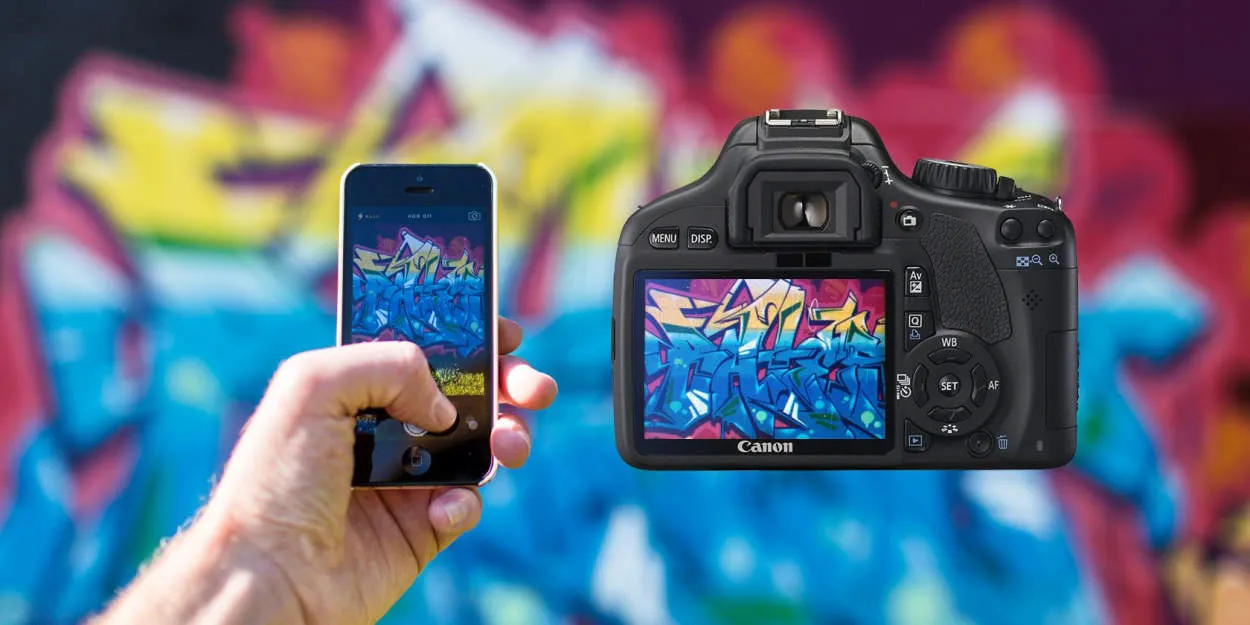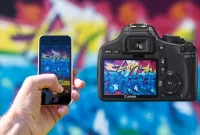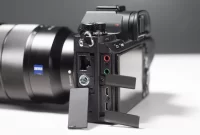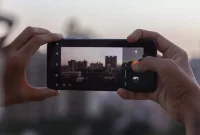When it comes to capturing moments, serious photographers still choose cameras over smartphones. Despite the convenience and portability of smartphones, dedicated cameras offer professional-level features and superior image quality, allowing photographers to push their creativity to the next level. In this article, we explore the reasons behind this preference and why cameras continue to be the go-to tool for serious photographers.
The Advantages of Dedicated Cameras for Professional Photography
In the digital age, smartphones have become primary devices for capturing photographs. However, professional photographers still opt for dedicated cameras over smartphones. There are several advantages that dedicated cameras offer, making them the preferred choice for serious photographers.
1. Image Quality
Dedicated cameras are specifically designed to capture high-quality images. They have larger image sensors, allowing for better light capture and improved image detail. This results in sharper, more vibrant photos with superior dynamic range.
2. Manual Controls
Professional photographers require precise control over their settings to achieve their desired outcome. Dedicated cameras offer a wide range of manual controls, including adjustable aperture, shutter speed, ISO, and white balance. These controls allow photographers to have complete creative freedom and capture images based on their vision.
3. Lens Options
Dedicated cameras offer interchangeable lens systems, providing photographers with a wide range of options to suit different shooting scenarios. With various lenses available, photographers can capture everything from wide-angle landscapes to telephoto wildlife shots, without compromising on image quality.
4. Speed and Performance
Dedicated cameras are built to handle demanding situations. They have faster autofocus systems, continuous shooting modes, and better low-light performance, enabling photographers to capture fast-moving subjects and produce sharp images even in challenging lighting conditions.
5. Accessories and Expandability
Professional photographers often require additional accessories to enhance their photography experience. Dedicated cameras offer a wide range of accessories, including external flashes, battery grips, and external microphones. Furthermore, dedicated camera systems can be expanded with additional equipment such as filters, tripods, and remote shutter releases.
In conclusion, while smartphones have made photography more accessible, dedicated cameras remain the top choice for serious photographers. The superior image quality, manual controls, lens options, speed, performance, and expandability offered by dedicated cameras provide professionals with the necessary tools to capture stunning photographs.
Exploring the Limitations of Smartphone Cameras
In today’s digital age, smartphones have undoubtedly become a ubiquitous tool for photography. With advancements in technology, these pocket-sized devices have significantly improved their camera capabilities, allowing users to capture high-quality images with just a few taps. However, despite their convenience and accessibility, serious photographers still prefer traditional cameras over smartphones. Let’s delve into the limitations that smartphone cameras face.
1. Limited Manual Control
One of the key drawbacks of smartphone cameras is the limited manual control they offer. Unlike dedicated cameras with manual settings like aperture, shutter speed, and ISO, smartphones often provide limited options for adjustments. This can hinder photographers from experimenting with different settings to achieve their desired artistic effects.
2. Image Quality Constraints
While smartphone cameras have come a long way in terms of image quality, they still face limitations compared to dedicated cameras. Due to their compact size, smartphone camera sensors are smaller, resulting in reduced light sensitivity and dynamic range. This can lead to noise in low-light conditions and less detail in challenging shooting situations.
3. Lens Limitations
Smartphone cameras typically feature fixed lenses with limited focal lengths. Although some smartphones now offer multiple lenses for different perspectives, they still can’t match the versatility of interchangeable lenses found in traditional cameras. The ability to change lenses allows photographers to adapt to various shooting scenarios, from wide-angle landscapes to telephoto portraits.
4. Handling and Ergonomics
Smartphones, primarily designed for communication and ease of use, may lack the ergonomic features necessary for extended photography sessions. Compared to dedicated cameras with robust grips, physical buttons, and viewfinders, smartphones can feel uncomfortable and unstable during prolonged use. This can potentially impact the overall shooting experience and lead to compromised image quality.
5. Professional Features and Workflow
For professional photographers, dedicated cameras offer advanced features and workflow options that are essential for their work. These include shooting in RAW format, tethered shooting, advanced autofocus systems, specialized metering modes, and professional-grade image editing and processing tools. Such capabilities are indispensable for photographers who demand the utmost control and precision in their craft.
While smartphone cameras have revolutionized everyday photography for many people, they still have limitations that hinder serious photographers. Ultimately, the choice between smartphones and dedicated cameras boils down to individual needs, preferences, and the specific demands of the photography task at hand.
The Importance of Manual Controls for Advanced Photography
In today’s era of smartphones with powerful built-in cameras, it may seem tempting to rely solely on these devices for photography. However, serious photographers understand the importance of using dedicated cameras over smartphones due to the presence of manual controls.
Manual controls allow photographers to have complete command over various settings such as aperture, shutter speed, ISO, and white balance. This level of control is essential for capturing images in different lighting conditions and achieving the desired creative effects.
With manual controls, photographers can adjust the aperture to control the depth of field, allowing them to blur backgrounds or keep everything in sharp focus. They can also manipulate the shutter speed to capture motion blur or freeze action. Additionally, manual control of ISO ensures optimal image quality by reducing noise in low-light situations.
Furthermore, manual white balance adjustment enables photographers to accurately reproduce colors under different lighting sources. This is particularly important when shooting in environments with challenging lighting conditions, such as indoor tungsten lighting or mixed artificial and natural light.
While smartphones may offer automated options, relying on these settings can limit the photographer’s creative vision and result in generic-looking photos. By using cameras with manual controls, photographers have the power to experiment and push the boundaries of their artistic expression.
Moreover, shooting with advanced cameras provides the advantage of interchangeable lenses, expanding the range of creative possibilities. Different lenses offer unique perspectives, depths of field, and focal lengths, allowing photographers to capture a wider array of subjects and styles.
In conclusion, serious photographers choose cameras over smartphones because of the invaluable manual controls they offer. The ability to adjust various settings provides greater creative freedom and enables them to produce high-quality, personalized photographs. So, if you are passionate about photography and want to take your skills to the next level, investing in a camera with manual controls is a wise choice.
How Cameras Provide More Creative Freedom for Photographers
Cameras offer serious photographers an array of benefits and added creative freedom compared to relying solely on smartphones. While smartphone cameras have certainly improved over the years, they cannot match the capabilities and versatility provided by dedicated cameras.
First and foremost, cameras provide better image quality. With larger sensors, dedicated cameras capture more detail, produce less noise, and offer superior dynamic range compared to smartphones. This means photographers can achieve sharper and more vibrant images.
Furthermore, cameras allow for interchangeable lenses. By selecting different lenses, photographers can create a variety of perspectives and depths of field, enabling them to capture unique and captivating shots in any situation. They can use wide-angle lenses for breathtaking landscapes, telephoto lenses for close-ups of distant subjects, and prime lenses for crisp low-light photography.
Cameras also offer manual controls that allow photographers to fine-tune exposure settings such as shutter speed, aperture, and ISO. This level of control is crucial for achieving desired creative effects, such as long exposures or shallow depth of field, that may not be possible with smartphone cameras.
Additionally, dedicated cameras often have built-in viewfinders, which provide a more traditional shooting experience. Viewfinders allow photographers to compose their shots precisely and see how settings like exposure and white balance impact the final image. This added control helps photographers visualize and execute their creative vision more effectively.
In conclusion, while smartphone cameras are convenient and can capture decent photos, serious photographers opt for dedicated cameras due to the unparalleled creative freedom they provide. The superior image quality, interchangeable lenses, manual controls, and viewfinder functionality empower photographers to push their creative boundaries and capture truly exceptional images.
Conclusion
In conclusion, serious photographers prefer cameras over smartphones due to the superior image quality, versatility, and control they offer. Cameras provide the ability to capture moments in high resolution and control various settings to achieve the desired outcome. While smartphones may have improved their camera capabilities, they still cannot match the level of quality and control that dedicated cameras provide. Therefore, for those who value the art of photography, investing in a good camera remains the preferable choice.




